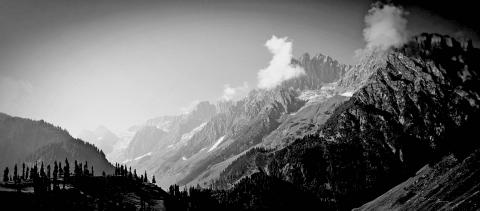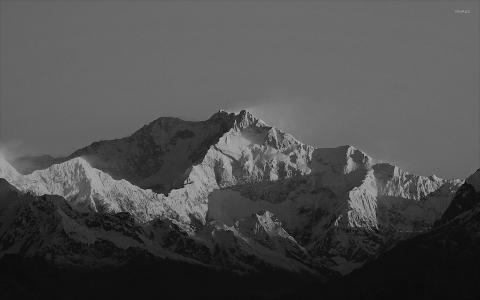
Let us now look at a story.
A story
There was a wedding in our village in the house of the landlord Shamarao. Shamarao was wealthy and generous. His kin by marriage Bhimarao was also a rich landlord and no less flamboyant. Fifteen cartloads of his people showed up for the wedding. So there were a hundred people from the groom’s side and a similar number from the bride’s side as well. With them were the two or three hundred villagers who...

In the phrase, īśvaraḥ sarvabhūtānām, īśvara is not to be taken as the same as the absolute aspect of Parabrahma. Īśvaratva is an aspect or a state of Parabrahma’s līlā. It is normally referred to as kārya-Brahma (Brahma as an effect). Supreme Brahma is without activity. When it appears to be active in the world, it is known as kārya-Brahma or īśvara. Whenever we consider either activity or the world, an element of māyā is involved. Volition,...

The nature of aparigraha (non-acceptance of superfluous material wealth) is well described in the story of Uṣasti in the Chāndogyopaniṣad.
Uṣasti was a brāhmaṇa living in the land of Kuru-pāñcāla. Hailstorms destroyed all the crops in the land causing a drought. People began to head out of their homes in search of food. So did Uṣasti and his wife. Uṣasti could not bear the pangs of hunger. His wife had become inured to hunger; she was emaciated...

asaktabuddhiḥ sarvatra jitātmā vigataspṛhaḥ |
naiṣkarmyasiddhiṃ paramāṃ saṃnyāsenādhigacchati ||
BG 18.49
The word naiṣkarmya is used repeatedly in the śāstras. It refers to a state of absence of pāpa when there is no activity being performed - a state without anxiety, a state of pure knowledge. For those in this state, karma is not a bondage. It is not that they do not perform karma; but that karma does not bind them anymore. Such people...

Qualities like truth and purity are not the special property of brahmins. They are to be practised by others as well. Why did we specially mention them as brahmaṇic qualities? The real meaning is that an excellent, exemplary brāhmaṇa behaves thus, and these qualities are easily practised by him; therefore other varṇas should also try to emulate him and earn those qualities — this is the real meaning.
ṣve sve karmaṇyabhirataḥ saṃsiddhiṃ labhate...

While bringing up a baby, is one who feeds milk superior and one who cleans the cradle is inferior? Is the person who rocks the cradle superior to the one who takes the baby to the toilet? Due to the love a mother has for the baby, she is equi-poised towards all activities that have to be done to keep him healthy and happy. There is no evaluation of the work as superior or inferior. Even in the service of Bhagavān, it is similar; there is no...

In our times, the question of why is a brāhmaṇa given more importance has become more and more vociferous. The answer to that is in the description of the above qualities. A brāhmaṇa is devout and truthful; he regards that knowledge is of paramount importance and is always peaceful. All people of all countries respect such a person. Respect for those qualities are not out of drum-beating or force or even encouragement. It is born by itself from...

Impurities comprise impressions carried over from many lives, or natural temperaments — different tastes, wavering wants and infatuations, etc. Thus, the unconscious tastes and impressions from past lives are the impurities. Some of them are to be suppressed and purged. Others are to be experienced fully and then only can they be done away with. Purifying the sattva means eradicating the past impressions. This happens when they are indulged and...

There are three types of pleasure as well.
yat-tadagre viṣamiva pariṇāme’mṛtopamam ।
tat-sukhaṃ sāttvikaṃ proktam ātma-buddhi-prasādajam ॥
BG 18.37
Sāttvic sukha is that in which the mind rests and finds that its sorrows cease, that which appears distasteful in the beginning but then results in amṛta-like sweetness. It is due to the purity and pleasantry of oneself. This is the sukha experienced when the intellect completely understands...

Let us look at Śrī Rāmānujācārya’s commentary for the above sūtra. The interpretations of the three schools of Vedanta differ from one another only in parts where it is not possible to give proof to anyone. Where it is possible to provide proof, they have no objections.
śāsanācca śāstram । śāsanaṃ ca pravartanam । śāstrasya ca pravartakatvaṃ bodha-janana-dvāreṇa । acetanaṃ ca pradhānaṃ na bodhayituṃ śakyam ataḥ śāstrāṇām arthavattvaṃ bhoktuś-...
